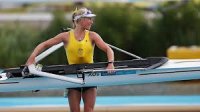Nearly 90% of parents would be more likely to choose a sports club or code for their child if it manages alcohol responsibly.
Research conducted for the Australian Drug Foundation asked more than 1,000 Australian mums and dads about athletes and their responsibilities as role models and about how alcohol is managed by professional sporting organisations.
The poll found that 78% of parents believe that professional sports players are important role models for young people. 87% believe that the drinking behaviour of professional sportspeople has an influence on young people.
Parents also overwhelmingly (93%) agree that professional sporting organisations have a responsibility to create a sporting culture where alcohol is managed responsibly, and almost 9-in-10 would choose a sports club or code for their child if it manages alcohol responsibly.
Australian Drug Foundation CEO John Rogerson says the poll sends a clear message to the professional sporting codes and clubs that, when it comes to alcohol and sport, they need to take responsibility.
“Which Australian kid has not looked up to an athlete, an Olympian or a professional sports person at some stage while growing up?” Mr Rogerson asked.
“Sports players and administrators have a unique opportunity and privilege to influence our culture by leading the next generation by example. The time has come for sports codes and clubs to think seriously about whether they’re allowing a binge drinking culture, or promoting a safer and healthier one.”
Mr Rogerson said that for too long, some sporting codes have refused to acknowledge that they have a “boozy culture.”
“They also don’t acknowledge the impact and harm that it is having on their own employees and those who look up to them. Too many Australians will tell you that one of the first times they got drunk was at a sports club.
“It’s really time wee shifted the spotlight away from binge drinking and back onto sport.”
World Champion and Olympic Rower Kim Crowe (pictured below) feels strongly about reducing the binge drinking toll in the community.
“Australia's love affair with booze is no laughing matter – it’s costing us an estimated $15 billion a year, and far too many of us know someone who has had his or her life irreparably damaged by alcohol, whether it be an alcohol-fuelled fight, drink driving, sexual assault or alcoholism,” Ms Crowe said.
“For better or worse, sport does play a role in setting our community standards of behaviour, and with professionalism comes responsibility. We expect our professional sportspeople to behave in a manner conducive to elite performance, and the binge drinking can really no longer be a part of that.”
“These days, we also have different expectations of our sportspeople – it’s because we now know better.”




















__small.png)










